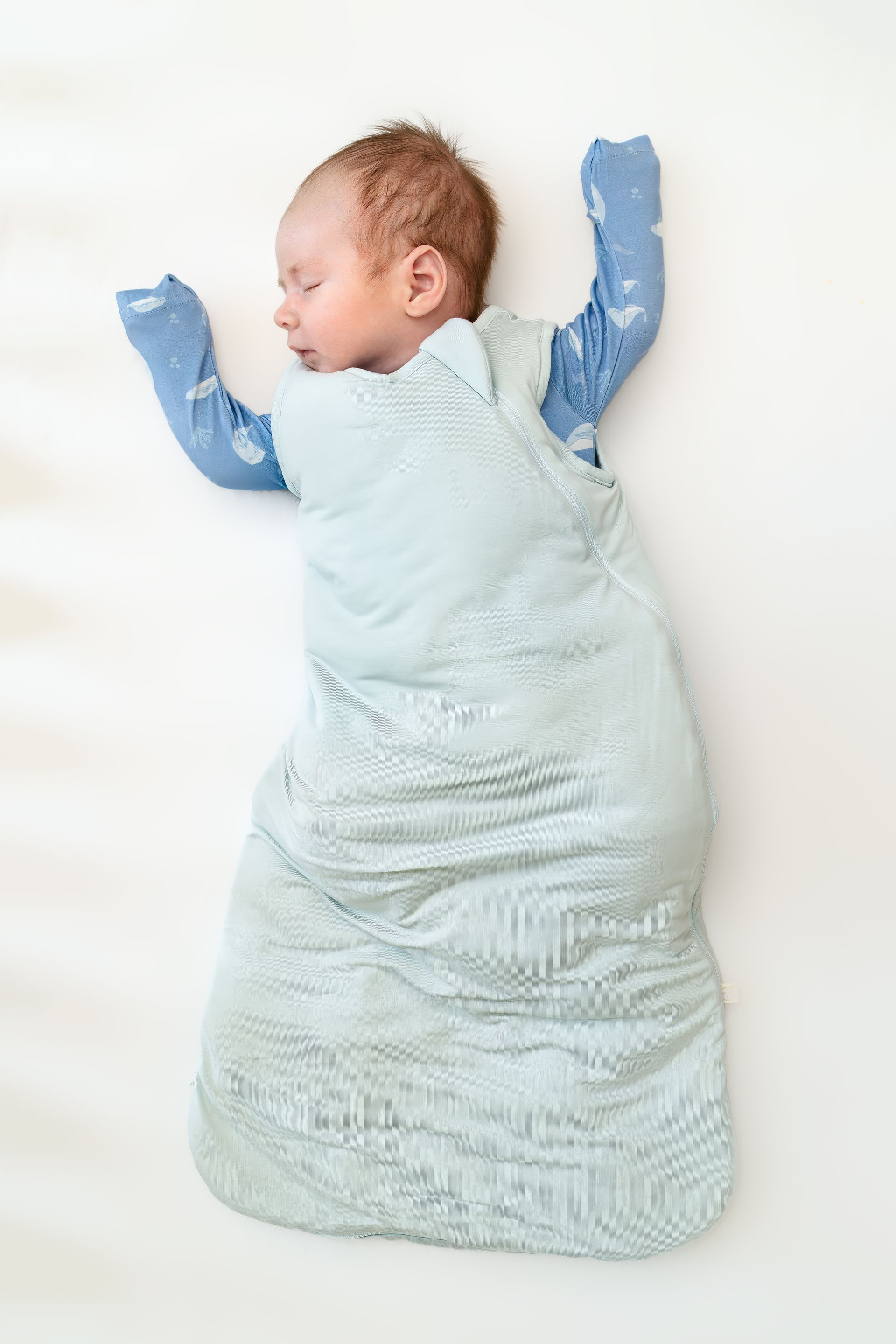The Regression Cheat Sheet
All you need to know about sleep regressions
Written by : Lamis Benjelloun
Ask any new and seasoned mama and she’ll have tales to tell on sleep regressions. Just when baby was settling into a nice predictable routine, they start waking up at night again or have a hard time sleeping. This is what we broadly recognize as a sleep regression but what is happening exactly?
If you look up a regression in the dictionary (Merriem Webster dictionary in this instance), you may find some of these definitions:
the act or an instance of regressing
a trend or shift toward a lower or less perfect state: such as reversion to an earlier mental or behavioral level
Similarly, if you look up the verb regress, you may find :
movement backward to a previous and especially worse or more primitive state or condition
These definitions all imply going back to some previous, less evolved state, which is very misleading because when it comes to sleep regressions, they are all directly a result of development milestones and skill acquisition. And in the process of learning and mastering these skills, baby may experience 2-4 weeks of disturbances in all other aspects, including sleep. So for the sake of being factually correct, let’s just start referring to them as PRO-gressions!
Below is a cheat sheet to help you recognize, understand and handle each of the major regressions in your baby’s life.
The 4 month regression
Development : Your baby’s circadian rhythms are maturing, making their sleep cycles look more like adult cycles. Your baby also has increased awareness of their surrounding and maybe starting to independently roll in bed, either back to front, front to back or both.
Effect on sleep : Baby’s new awareness of the world might be making it harder for them to surrender to sleep. It is probably more fun to watch mom or sibling playing near by than it is to fall asleep.
Babies who have so far slept well, as well as those who have had difficulties, might experience an increase in night wakings. This is a result of the development of circadian rhythms, requiring of them to follow more of a schedule. You may also see shorter naps if their schedule needs are not met.
What to do : You should have probably done that a few weeks ago but if you haven’t, stop swaddling your baby as they are likely able to free themselves at this point. In order to honor baby’s rhythms and sleep needs, it is important to set up an age appropriate schedule as well as make their sleep environment more consistent. This is a great time to start helping baby to practice and learn self settling skills and if baby was already sleeping pretty independently, try not to introduce any new sleep props.
The 8 month regression
Development : There is so much growth happening for your child now. The concept of object permanence or knowing that objects still exist even if they are out of sight develops around this age (though for some, it can develop as early as 4-7 months). In terms of more physical skills, some kiddos are learning to crawl or scoot, while others are pulling up or even standing assisted.
Effect on sleep : Baby’s new found physical capabilities might have them wanting to try these skills at night. This means that you might witness more night wakes. They might resist going to bed and having you out of their sight and that resistance might become a little physical as they might pull up on the crib rails.
What to do : As simple as it may sound, practice practice practice! Intentionally spend time during the day to practice all those physical skills. Peek-a-boo and hiding toys for baby to find will also help work on the development of object permanence. If you have not done so already, you should move the crib mattress to lower setting and resist the urge to lay baby down if they pull up unless there is a safety risk.
The 12 month regression
Development : Baby might be learning the walk and talk at this age.
Effect on sleep : You might see more night practice and night wakings at this point again. In addition, lots of kiddos at this age start refusing their second nap of the day.
What to do : Many parents assume that baby is ready to transition to one nap since they are having such a hard time sleeping for one of their naps. However, I STRONGLY recommend you refrain from doing that. Baby still needs the two naps for a few more months and trust me, dropping the nap now will only cause more problems. In short, continue offering naps at the same time and remain consistent in your response for both naps and night wakings, trying your best not to acquire new sleep crutches.
The 18 and/or 24 month regression
Development : A toddler has so many words and can do so much talking. They are also gaining tons of independence and may exhibit some signs of separation anxiety.
Effect on sleep : With this new found sense of independence, your child might become more difficult at bedtime, resisting every step of the bedtime routine or even refusing to go to sleep.
What to do : Give baby enough reassurances that mommy and daddy always come back so that he can relax and go to sleep. To help them exercise that new sense of independence, give them simple choices and decisions to make during their bedtime routine while still remaining consistent. That consistency will allow them to feel secure and find comfort in always knowing what comes next.
With all this information at hand, you now have the tools to help you face the many PRO-gressions that you might face during the first two years of your baby’s life. And when you are in the trenches, remember that you want to a) stay consistent and b) try not to acquire new sleep crutches. While it may not feel like it, this too shall pass but if you find that your child’s latest regression has made you realize that they need better sleep habits, reach out for one on one support!





